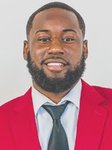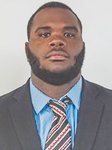

It was Thursday, March 12, when the NCAA announced what had seemed unthinkable — it was canceling March Madness and all other winter and spring championships as the COVID-19 pandemic began to spread.
Just like that, college sports — and soon the entire sports world — was put on indefinite hold.
Now after nearly four months, college athletes are poised to return to campuses and prepare for an unprecedented and uncertain fall season.
“Normally we would have been back on May 28 and started summer classes and training by now,” said Jaylan Thomas, 20, a Carrollton, Georgia, native and starting running back at Elon University. “But with everything being pushed back, we report on July 5.”
Elon is one of several college sports programs that have either already resumed team training or are planning to in the next couple of weeks. UNC-Chapel Hill’s football program began returning players to campus in phases early last month. Most of the football teams in the SEC began voluntary workouts on June 8.
“I wouldn’t say I was concerned, but I just think we need to be smart about it,” said Sam Howell, UNC’s sophomore quarterback, in a recent Zoom call with reporters. “Obviously everyone wants to play football. But at the end of the day, we’ve just got to do things the right way.”
Some of the new protocols and safety measures announced for Elon football include mandatory testing for every player upon arriving to campus; daily health screenings and temperature checks; restricted and limited use of locker rooms; and a maximum of 10 players in the weight room at once. Almost all NCAA Division I programs have adopted similar measures.
While these procedures mitigate the risk, there’s only so much you can do to prevent passing the virus in sports like football, where close contact in huddles and tackles are a necessary part of the game.
In the case of Alabama and Louisiana State, early results have shown that student-athletes in these settings are prone to contracting and spreading the virus. Eight Alabama football players and 30 members of LSU’s football program have tested positive for COVID-19 in just the first few weeks of workouts.
“It’s not surprising we’re seeing the rise right now,” Shelly Mullenix, LSU’s senior associate athletic trainer, recently told Sports Illustrated. “It’s a pandemic. We should not be shocked. The story is that it’s exactly what we said it would be. We were prepared from the get-go for a lot of virus.”
Athletic directors and sports information directors at Duke, UNC and Elon were contacted, but all declined to comment.
As far as some student-athletes are concerned, the return of sports can’t get here soon enough.
“The thing I am most looking forward to is getting back with the boys, and just talking with each other and being around each other, and recreating that atmosphere,” said Thomas, who is entering his junior year at Elon. “When you are around a group of people as much as we are as teammates, they become your family. So it’s been weird not having that.”
The athletes expressed little trepidation about returning to play.
“It seems like everyone on the team is excited and just ready to play,” said Taylor Otto, a senior on the UNC women’s soccer team. “Right now, we expect a season, but we also realize that it could end midseason or before it even starts, to be honest.”
College athletes aren’t the only ones itching to get back. Professional athletes, coaches and fans all across the country have been pushing to get back to the playing fields and courts for months.
But the process of getting them back hasn’t been so simple.
“It’s such a challenge, not just because of the virus, but how we play sports,” Dawn Comstock, a sports epidemiologist at the Colorado School of Public Health, recently told the New York Times. “The activities are so ingrained and part of the culture that even when the sport can be played safely, it’s not likely that the participant will be willing to adopt the guidelines needed to do that.”
Student athletes say they recognize there will be changes this fall and are committed to following whatever new guidelines or protocols are put in place to ensure their ability to play and remain safe. Even if that means playing to empty stadiums.
“Something that I know has been in the back of everyone’s minds is the idea of playing with no fans,” Thomas said. “I mean, I’ll do it, but it would definitely be weird. It would be a quiet game.”
Otto voiced similar emotions: “A lot of people are kind of sad, especially freshman and sophomores, at the prospect of us not having fans.”
Jabrill Williams, 19, an offensive lineman at Elon, said having no fans is a small price to pay if it means having a fall season.
“I’m looking forward to the season regardless,” said Williams, a Statesville native going into his redshirt freshman year. “I just really want to play.”
Otto, who has been living in a house close by campus with six of her teammates, said they have already been holding themselves and one another accountable.
“We have been kind of like bullying each other to make sure no one is going to bars, no one is throwing parties, making sure we all wear masks when we go out,” Otto said. “Just trying to do all the major things that are within our control.”
She is a part of a UNC women’s soccer team that sits as the reigning ACC champions. This past season they made it to the women’s College Cup final for the second consecutive season, but came up just short. If they can overcome the challenges of the virus and play a full season, they will be looking for a bit of redemption.
Just the opportunity to be out there again would be a gift, Otto said.
“For me, I just really want to play and be with my teammates one last time,” she said. “I can’t imagine ending my college career early or when I did not expect it to end.”
The NC News Intern Corps is a program of the NC Local News Workshop, funded by the North Carolina Local News Lab Fund and housed at Elon University’s School of Communications.